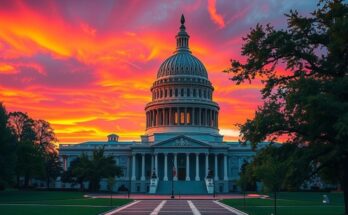The proposed tax reform bills in Nigeria have sparked debate among stakeholders concerning their impact on the Nigeria Customs Service. Introduced by President Bola Tinubu on October 3, 2024, the bills aim to modernize tax administration. Yet, concerns have been raised regarding potential operational conflicts and financial burdens on citizens without necessary amendments. Stakeholders emphasize the need for careful integration of customs operations with the proposed tax framework to preserve operational efficiency and revenue generation.
The recent public hearing concerning proposed tax reform bills has ignited discussions among diverse stakeholders, including associations, agencies, and government officials. On October 3, 2024, President Bola Tinubu introduced four bills aimed at overhauling Nigeria’s tax administration: the Nigeria Tax Bill 2024, the Nigeria Tax Administration Bill, the Nigeria Revenue Service Establishment Bill, and the Joint Revenue Board Establishment Bill. Stakeholders advocate for these reforms to align with global best practices, enhancing transparency and fiscal stability.
Despite the potential benefits of these reforms—such as improved economic growth and elimination of inconsistencies—there are critical concerns regarding their implementation. Critics caution that without necessary amendments, the reforms may increase the financial burden on Nigerians, deter investment, and undermine crucial governmental agencies, particularly the Nigeria Customs Service (NCS). As an essential revenue-generating entity, the NCS could face significant operational disruptions due to changes in its administrative procedures.
Experts have emphasized the need for careful integration of customs operations within the broader tax policy framework. They stress the possible detrimental effects on customs procedures and border management if inconsistencies arise between the proposed bills and the existing NCS Act of 2023. Stakeholders have expressed that such conflicts could result in accountability issues and operational inefficiencies for the NCS if the suggested reforms are enacted without modifications.
The Association of Nigerian Licensed Customs Agents (ANLCA) voiced strong opposition to repealing the NCS Act, which only began implementation in 2024 after a lengthy legislative process. ANLCA National President, Mr. Emenike Nwokeji, cautioned against disruptions that could arise from these reforms and underscored the crucial role the Act plays in resolving long-standing inconsistencies in import duty collection.
Mr. Nwokeji warned that unadjusted tax reforms could create significant legal conflicts and operational challenges, necessitating a focus on reinforcing the NCS alongside other revenue agencies. He also highlighted that repealing the Customs Act would mandate substantial investment in training new personnel, which would take a considerable amount of time to establish expertise that current customs officers have accumulated through experience.
Mr. Okey Ibeke, a customs and tax expert, reiterated the importance of maintaining the NCS’s operational integrity. He expressed concerns over the capacity of designated revenue agencies to conduct customs operations effectively, predicting revenue losses if the proposed reforms are implemented without the skilled personnel required.
Furthermore, Dr. Eugene Nweke from the Customs Consultative Committee raised alarms about legislative inconsistencies and suggested that preserving NCS autonomy is essential while fostering partnerships for customs modernization. Meanwhile, Comptroller-General Adewale Adeniyi recognized the urgency of revising Nigeria’s tax laws but insisted that any final legislation must uphold the core functions of the NCS to ensure its effectiveness and compliance with international standards.
In summary, the introduction of proposed tax reform bills has generated significant debate surrounding their potential impacts on Nigeria’s customs operations. While there is optimism for creating a more effective tax administration, stakeholders have expressed deep concerns about conflicts with existing laws, which could undermine the Nigeria Customs Service’s operational capacity. Ensuring collaboration between tax reforms and customs regulations is essential to safeguard national revenue and maintain the efficacy of the customs sector.
Original Source: nannews.ng




